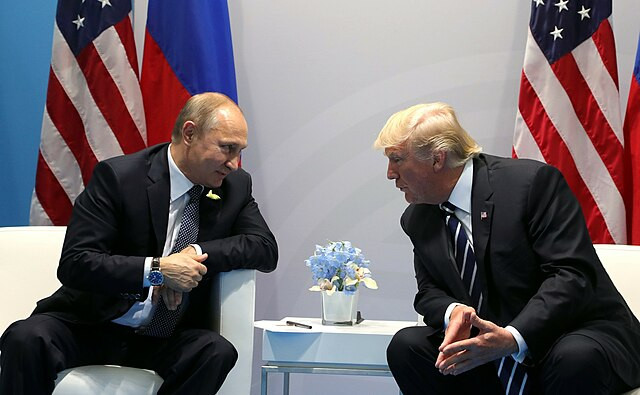Senior U.S. and Russian officials convened Monday in Riyadh, Saudi Arabia, as part of renewed peace efforts aimed at de-escalating the three-year-long conflict in Ukraine. The discussions, focused primarily on a potential maritime ceasefire in the Black Sea, mark one of the most significant U.S.-Russia engagements in months.
The American delegation is led by Andrew Peek, senior director at the White House National Security Council, and Michael Anton, director of policy planning at the State Department. On the Russian side, Grigory Karasin, chair of the Russian upper house of parliament's Foreign Affairs Committee, and Sergei Beseda, adviser to the director of Russia's Federal Security Service, are participating, according to Reuters and Interfax reports.
The talks follow a meeting between U.S. officials and Ukrainian President Volodymyr Zelenskyy's team on Sunday, which Zelenskyy described as "quite useful." Zelenskyy emphasized the need for Russian President Vladimir Putin to halt military strikes, stating, "No matter what we're discussing with our partners right now, Putin must be pushed to issue a real order to stop the strikes - because the one who brought this war must be the one to take it back."
The U.S. aims to first secure a ceasefire agreement ensuring safe navigation for Black Sea shipping, particularly grain exports, before moving to broader issues. White House National Security Advisor Mike Waltz told CBS' "Face the Nation" that discussions are also covering verification measures, peacekeeping deployment, and territorial lines of control. "Confidence-building measures" such as returning Ukrainian children taken to Russia are reportedly part of the agenda.
Kremlin spokesman Dmitry Peskov noted, "This is primarily about the safety of navigation," adding that previous agreements, including the 2022 Black Sea Grain Initiative, failed to deliver on Moscow's expectations. The original grain deal, brokered by Turkey and the United Nations, allowed for nearly 33 million metric tons of Ukrainian grain exports before Russia exited the agreement in 2023.
Grigory Karasin described Monday's talks as progressing "creatively," acknowledging that discussions included key irritants in U.S.-Russia relations.
Despite the diplomatic overtures, violence continues. Russia launched a large drone attack on Kyiv and other Ukrainian cities overnight Sunday, underscoring the challenges ahead. Moscow insists it is adhering to a 30-day moratorium on targeting Ukrainian energy infrastructure, a pause Putin reportedly promised former U.S. President Donald Trump, though Kyiv disputes Russia's compliance.
Trump, who has intensified calls for an end to the war, said over the weekend that conflict escalation is "somewhat under control." U.S. Special Envoy Steve Witkoff echoed Trump's sentiment, telling Fox News, "I just don't see that he [Putin] wants to take all of Europe." Witkoff added, "I think you're going to see in Saudi Arabia on Monday some real progress, particularly as it affects a Black Sea ceasefire."
However, skepticism persists among European powers regarding Putin's readiness to make meaningful concessions. The Russian president continues to demand Ukraine formally drop NATO membership ambitions and withdraw troops from four partially occupied Ukrainian regions.
Ukraine's defense minister Rustem Umerov, who led Kyiv's delegation in Riyadh, stated that talks included proposals to safeguard critical infrastructure, including energy facilities.




